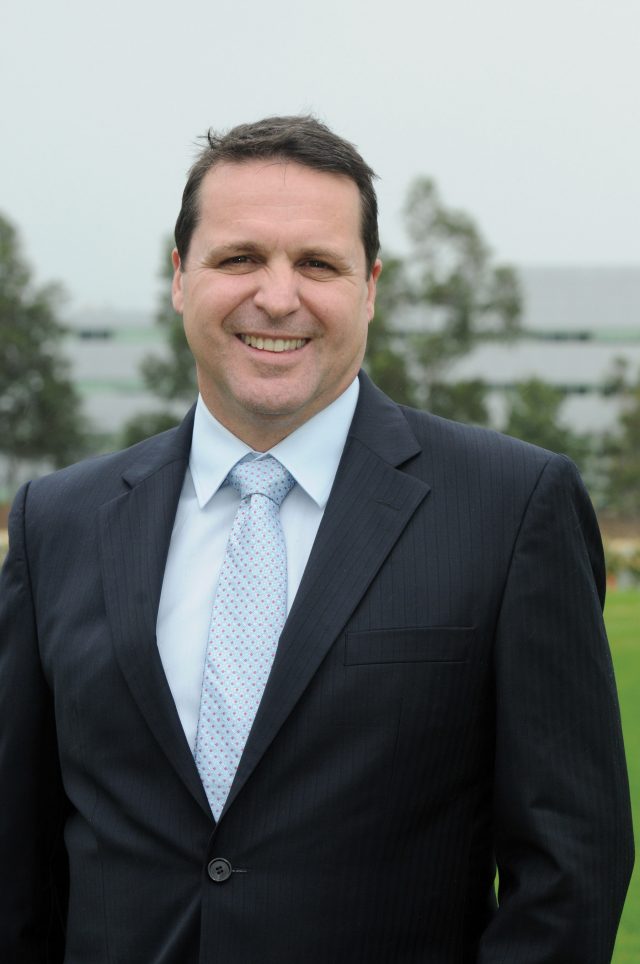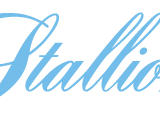RICHARD Freedman’s working life has been diverse. As part of “FBI” (Freedman Brothers International) he and his brothers collected Melbourne Cups and Golden Slippers with metronomic regularity before Richard moved into the media, tried racing administration and then started a commercially successful business in the field of water management.
 But things have turned full circle, seeing him return to the training ranks, now in a partnership with brother Michael and with son Will serving as an apprentice.
But things have turned full circle, seeing him return to the training ranks, now in a partnership with brother Michael and with son Will serving as an apprentice.
Q: What was life like growing up on the family farm, Hardwicke Stud at Yass?
A: “Looking back on it, it was a great upbringing, we had opportunities to do things that other kids didn’t. We had horses and cattle and went to agricultural shows, and then we caught the same bus to school into Canberra every day, a two-hour bus ride with the likes of Darren Beadman and Greg Bennett. “After school I went to Australian National University and studied Economics/Law for a short while but it was around the time our Dad got sick. As a consequence, we all ended up dropping study and finding something we could do to contribute, as we had to look after our mother and elder brother, and Michael was still at school.”
Q: As a partnership in the days before they were recognised, how did things work at Warwick Farm?
A: “We had a limited number of boxes so Lee and Anthony made the move up there with our team of about six “bush” horses while I stayed on the farm pre-training others. They lasted about six months because, at that time, Warwick Farm was not a respected training venue, but they did make some great mates. Blokes like Billy Mitchell, who we still do business with today, was training there, as was the late Guy Walter, who was just starting up, and the late Tony Wildman, the funniest man in racing. But besides the camaraderie we learnt a lot from those guys.”
Q: Things started pretty successfully for the team, why choose Melbourne over Sydney when it came time to expand?
A: “We wanted to go to Randwick but at the time those in charge considered we didn’t have the “profile” of a Randwick trainer, so we loaded up the caravan and headed to Melbourne. We purchased some run-down boxes across the road from Flemington off an old trotting trainer and I went down early, spent a month fixing them up and getting them in good nick before the boys moved in, and we went on from there.”
Q: In those early days Sitting Bull (Royal Rocket) was the stable star, what did he contribute to the Freedman brothers story?
A: “Well he certainly put enough money on the table to put a deposit on those stables. Our father loved the punt and we had been listening to him telling us how to set one up for a kill for 20 years, so when we got Sitting Bull we had a crack at a coup ourselves. Sadly for our parents, it came off and we all thought this racehorse training looks pretty easy.”
Q: You lost your Dad far too early but clearly he passed on a few pearls of wisdom. What was he like and what did you take from him that you still use today?
A: “Dad was a builder by trade but I don’t think he ever really liked building. He was good at it and made good money at it, but when you take two years out of the game and buy a fishing trawler and then later on say you are going to buy a farm at Yass and breed thoroughbreds, I don’t think he was fully committed to the building thing. “He was a bit of a maverick and he was never frightened to have a go. One thing we did learn from him and his various projects was, really, you can do anything you put your mind to if you have a go and you work hard. You may not succeed, but there is every chance that you will.”
Q: The majority of trainers nowadays concentrate solely on the logistics of the stable, but every time I’ve seen you at Rosehill you have a lead in hand and a horse on the other end either just off a walker or out of the hosing bay. Why not leave that to the staff?
A: “I like horses, I just like everything about them. That to me is the really pleasurable thing about training horses. Winning races and going out socially is all good, but the part I really like is getting my hands dirty and just being with the horse. They are the most beautiful animals. If it ever became such a chore that I had to spend all my time in an office or in planes and on the phone, then that’s a different job and not one for me.”
Q: Talking of different jobs, you’ve been in the media for quite some time, how did that come about?
A: “The four of us worked together right through until 2000 when, out of the blue, I got an offer to host a breakfast radio show on Sydney’s old 2KY. I guess we had got to the point where we had done a lot, and although there is always more to achieve in racing, I just thought I could continue on or I could do something different. “I did media in various guises for 15 years. I did The Back Page on television for years, I’m still doing opinion shows for Channel 9, I wrote the sport editorial for the Sunday Telegraph for years and I’m still working for Sky Channel. I’ve had a good go at all of it, but then that too lost its challenges.”
Q: Part of your popularity in the media was your reputation for not shying away from a topic, something that carried on into the age of social media. Is that naturally Richard or something you had developed to fit into the media role?
A: “One of the first things I was told in the media was ‘if you haven’t got an opinion, get one’, which was coined by one of America’s leading talkback radio hosts and was paraphrased later by Howard Stern. Radio as a medium is all about having an opinion and being entertaining, I’ll let others judge if I was successful or not, but I managed to make a living out of it for 15 years. As for Social Media, there are issues I’d like to be more strident on but the commercial reality is I can’t be as strident as I’d like to be. I guess it is part of my make up. I’ve never been backward in coming forward, which hasn’t helped me sometimes. You get older and a bit wiser and think ‘you know you probably shouldn’t have said that’.”
Q: After 2KY there was the short-lived role with the Australian Jockey Club, what happened there?
A: “That was a low point. After seven years on the breakfast show I started to think, “well I’m on the treadmill again here” and that doesn’t suit me. The AJC offered me the gig and I thought I could contribute something; six months into that role I knew that wasn’t going to be the case. The way the club was at that time, the way things were structured and the way, for whatever reason, the media had an agenda to drag down the administration of that club, I figured out there was no future here. I got to month 11 and that was enough for me.”
Q: Was there anything positive you took away from the experience?
A: “Lots of things. I learnt how racing administration actually works, which has given me a better understanding of how to deal with certain things. I also learnt a tremendous amount about administration because in that role it was impossible to administer, so I’ve figured out what not to do. “One major positive to come from the time was I started a business out of it called Centratech Systems, which specialises in wireless monitoring and control systems for most of the larger municipal councils along the east coast of Australia and the Northern Territory. We had farms with their own irrigation systems and control systems and during my time at the AJC I met a guy who was in charge of irrigation at the tracks. I got interested in what he was doing and the company sprung from there. He is still my Operations Manager to this day. We grew the business from nothing to today where it would be the biggest in our sector. Centratech, or CTS, manufactures, and is just about to start distributing, our own monitoring and control system called Fieldmouse and is growing every year. It keeps me occupied otherwise.”
Q: But now you’ve found your way back to racing, how did that come about?
A: “I started off pre-training a few out of Hawkesbury for Michael simply because he asked me to. He had a limited number of boxes at Randwick and took the view ‘if you were going to have a satellite stable you may as well have the most qualified person you could get to run it’. At the time my media stuff was down to a manageable level and my son Will had decided he wanted to be a trainer, so it seemed a good way to teach him the ropes.”
Q: But why the jump from pre-trainer to back to the training ranks?
A: “It happened by default when Michael took up the contract in Hong Kong. I had to decide to either stop doing it or ‘put the shingle up’ and go again. It made sense with Will’s desire to be a trainer that we pushed on, so, starting with three horses we got old Auvray (Le Havre) going, drew in a few others and within 18 months to two years we had 80 horses on the books. We did have the advantage of knowing how to build a stable as we’d done all that probably two or three times before with the cycles that trainers go through.”
Q: Are there any secrets to success that you are prepared to divulge here?
A: “For most trainers it is a lot of hours, a lot of communication, a lot of planning and prosecuting that plan. As most trainers are horseman they can often lose sight of some of those things. The ones who don’t lose sight, the likes of Chris Waller, run past the others. “Possibly the most important thing about training winners is the standard of horse that walks through your front gate. Training good horses can make some handy trainers look like superstars and training bad horses can make the best of trainers look very ordinary. You can’t overestimate how important that quality is. And to get the right horses; that’s where you need to be a bit of salesman, a businessman, an entrepreneur and a risk taker rolled into one and not every trainer is made that way.”
Q: There is a perception that Michael trains all the youngsters and you get the mature runners, is that part of the business plan?
A: “When Michael returned from Hong Kong all he had was young horses in the stable so the logical thing was to keep all of them together so they have partners to work with, as you can’t generally work them with older horses who are at a different stage of their training. My stable was generally made up of older horses so it made sense that we kept it like that for the time being. There is a risk we may get pigeon-holed, ‘oh he can only train two year-olds’ or ‘he can’t train older horses’ when that’s not true in either case, its just the business model at the moment.”
Q: How do you avoid that being an issue for the partnership going forward?
A: “It’s evolving. At some stage the number of two year-olds we have will exceed the number of boxes Michael has at Randwick so at some stage the mixture will become more pronounced. There are other factors, such as the fair distribution of race day strapping allowances, which stable staff rely upon to supplement their earnings. With young horses racing less frequently the Randwick staff need a few older horses to have some parity with their Rosehill counterparts.”
Q: So with the two stables how does Will split his time?
A: “At the moment he does one fast morning a week at each track and then in between he has a more administrative, customer facing role. He gets along very well with our owners, and as important as the horsemanship side of things is, we think it is just as important that he learns to bring in the business and also to go to yearling sales and select the right type of horse for the future.”
Q: You mention the yearling sales and over the years you’ve had your hands on some handy ones, as recently as Prime Star who won the Inglis Milennium. Has that been luck or good judgement?
A: “One thing we reckon we are good at is picking yearlings. We’ve picked champions as yearlings using a very set selection criteria. We know what we will and won’t forgive and consider other facets like the mechanics of how they move, what their attitude is like and the strike rate of the stallion. It’s all about maximising your chances.”
Q: Just to pick one champion, did Schillaci meet your criteria?
A: “We had picked him out and liked him, but so did Alan Bell who he was knocked down to. It worked well though, he bought him and we trained him. He was a big, loose horse who was always a chance to do something. “We galloped him as a two year-old and he could really move, but he immediately went shin sore. We brought him back as a late two year-old, gave him two gallops and again he went shin sore. Same thing again as a three year-old and we thought, ‘nah . . . he seems a bit soft’. “The next prep I galloped him with an open class sprinter who he towelled up with ease. So, thinking he’d win his maiden easy enough, we took him to Kyneton for a kill. Come race morning word got around to us that Ian “Skinny” Saunders, a trainer known to bring off a plunge, had one in the race who would win easily. We were still confident, so come the time of the race we’ve put our cash down and Schillaci starts 6/4 favourite I think, while Skinny had backed his into a pretty short price too. Of course, Schillaci coasted home leaving poor old Skinny scratching his head as his horse ran second. The runner-up was a mare called Mavournae (Cerreto) who won a Rubiton Stakes! Skinny was right, he had a good one, he was just stiff in that he struck a champion having his first start.”
Q: What’s the next step in the development of the partnership?
A: “We only have a limited number of boxes but are very keen to lift the standard of horse in the stable. One thing we are is brutally honest with our owners; if they should not be paying city training fees for their horse, then we’ll try to find a better alternative. That way you’re are putting pressure on yourself to lift the standard and at the same time doing the right thing by your owners.”
Q: What advice would you give anyone about to enter the industry?
A: “If I was an owner I’d be looking to have smaller interests in horses of higher quality rather than greater shares in horses with less ability, remembering the slower ones cost just as much to train as the faster ones. “If they were thinking of training, I think it is going to be incredibly hard to get a start. Sadly, the days of somebody starting out in the bush with two horses and working their way up the ladder may be gone. In my time I think we will see a smaller number of large capacity stables that will win most of the races on a Saturday, and the battlers are going to struggle. I can see our equivalent of supermarkets versus corner stores becoming more pronounced.”



